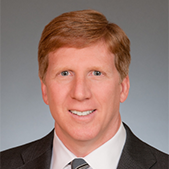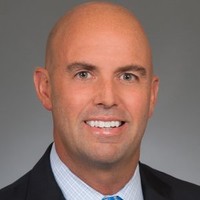SPOTLIGHT
Alternative Angles
A podcast offering fresh perspectives on alternative investments for more informed investment decisions.
Alternative Angles: A new podcast series from Fidelity and Institutional Investor
Produced in collaboration with Institutional Investor, Alternative Angles is your go-to source for the latest alternative investment insights from Fidelity. Hear from leading portfolio managers and researchers as they discuss current market trends and emerging alternatives strategies to help you unlock new ways to drive portfolio returns.
Episode 11
Structured credit spotlight: Collateralized loan obligations



Collateralized loan obligations (CLOs) have been a cornerstone of structured credit for decades, delivering durable performance through multiple market cycles. But what makes them so resilient? In this episode of Alternative Angles, Fidelity’s Tim Hartshorn, managing director and head of CLO Capital Markets and Structuring, and Fidelity Portfolio Manager Kevin Nielsen join Host Steve Rosen to break down the architecture of CLOs—from senior secured loan portfolios to structural credit enhancements and protective covenants—and explore why CLOs remain a powerful tool for portfolio diversification and income generation.
Tune in for insights on:
- How CLOs are built to withstand volatility.
- The role of active management in navigating credit cycles.
- Key trends shaping the CLO market today.
Episode 10
Inverting risk and capturing the spread: Merger arbitrage explained



In this episode of Alternative Angles, Fidelity Portfolio Manager Niraj Gupta and Host Steve Rosen explore the intricate world of merger arbitrage—a strategy focused on capturing returns from announced corporate transactions while managing downside risk. Through real-world examples, including successful and failed deals, you’ll gain a deeper understanding of how merger arbitrage synthesizes financial, legal, and trading expertise with corporate strategy assessment to create a diversifying, market-neutral strategy for institutional portfolios.
Among other insights, the conversation covers:
- The nuances of the discipline, what it is—and what it’s not.
- Risks and rewards of merger arbitrage for an asset allocator overseeing a diversified portfolio.
- Fidelity’s approach to merger arbitrage and how it produces results for investors.
Episode 9
Managed futures: Systematically following the trend until it bends



Managed futures use a trend-following framework to observe the path and detect changes in the direction of financial assets. In this episode of Alternative Angles, Fidelity Portfolio Manager Roberto (Rob) Croce joins host Steve Rosen to discuss how models are built and used to spot the price path persistence of a security—a stock, bond, currency, or commodity—and how the directional price drift is ridden until the model indicates its trajectory has been disrupted.
Rob has spent the last 15 years investing in managed futures. Along with his team, Rob has developed a differentiated and disciplined systematic long/short strategy that is capital efficient and invested in a broad and diverse set of markets. Topics include:
- The features, attributes, and return profiles of a managed futures strategy that might lead an investor to consider adding it to a multi-asset portfolio.
- Favorable and challenging market conditions for a managed futures strategy.
- The human factor driving the existence and persistence of trends.
- How quantitative models combine signals to identify trends and assess conviction, leading to trade implementation.
Episode 8
Capturing alpha: A bridge between quantitative and fundamental disciplines



Listen in and learn about the systematic effort to harness Fidelity’s proprietary fundamental data, alternative data, and quantitative capabilities in new ways to produce pure alpha strategies for investors. Join Alternative Angles host Steve Rosen for a sit-down with Gilbert (Gil) Haddad, Fidelity’s chief investment officer of advanced strategies and research, as they dig into what makes alpha capture strategies tick.
Among other insights, their conversation focuses on:
- How to think about different types of alpha capture as a component of a broader portfolio.
- Sorting through alpha capture signals, including alternative data, extracted from Fidelity’s decades of fundamental research and portfolio management to generate investment ideas.
- Opportunities for data exploration and utilization—and the future of Fidelity’s alpha capture business.
Episode 7
Uncovering opportunities in direct real estate



Investor preferences and strategies always matter, and in real estate that means getting the risk appetite right. In this episode of Alternative Angles, Ellen Hall, head of direct real estate at Fidelity, and David Kozlicki, global head & CIO of real estate, Unified Global Alternatives at UBS Asset Management, join host Steve Rosen to discuss the levels of risk and potential return in direct real estate investing, and the argument for owning the asset class as a component of a diversified portfolio. Ellen and David share a wealth of experience and knowledge, including:
- How the return and volatility profiles of real estate stack up against other asset classes.
- Commercial property investing strategies and the current institutional real estate landscape.
- Opportunities and risks, and attractive property types and geographies.
- Manager selection criteria and preferences.
- Public market versus private market commercial real estate investing.
Episode 6
Opportunistic and distressed debt investing: The strategies, stories, and intricacies



This episode of Alternative Angles visits the fascinating and nuanced world of opportunistic credit and distressed debt. Harley Lank, portfolio manager and head of Fidelity’s High Income & Alternatives Division, Nate Van Duzer, managing director, special situations, and Bill Wall, managing director, special situations, join host Steve Rosen to discuss how they work closely with their team of analysts and traders to find inefficiencies and unlock potential in stressed and distressed credit. Topics include:
- Case examples of successful complex restructurings.
- The totality of the investment process: identifying fulcrum opportunities, due diligence, and tactics employed to effectuate a favorable outcome for investors.
- Different types of liability management exercises (LMEs) and how they play into their strategies.
Episode 5
Exploring options and options-based investing strategies



In this episode of Alternative Angles, host Steve Rosen, a former portfolio manager in Fidelity’s High Income & Alternative Investing division, talks equity options with Eric Granat, Fidelity portfolio manager and derivatives analyst. Eric has spent more than twenty years trading, analyzing, and investing in options and shares his insights on how he constructs options-based strategies to enhance portfolio performance and risk attributes.
Listen in as Eric and Steve dive into options-based investing strategies, including:
- The attributes, benefits, and risks of put and call options and their use cases for investors.
- How an investment portfolio appropriately built with an options-based overlay is a method to create a more stable return profile.
- Eric's rationale for why options-based strategies are worth considering as an alternative to the traditional 60/40 portfolio mix.
- New developments in a dynamic options-based marketplace.
Episode 4
Deconstructing convertible bond arbitrage



In this episode of Alternative Angles, host Steve Rosen, a former portfolio manager in Fidelity’s High Income & Alternative Investing division, digs into convertible arbitrage. Along with guests Seth Gold, a portfolio manager in Fidelity’s Arbitrage and Hedging Solutions group, and Michael Youngworth, a director in Global Equity Derivative Research and the head of Global Convertibles and Preferreds Strategy at Bank of America, Steve explores an investment discipline worth considering as a potential source of uncorrelated absolute return with low volatility.
Drop in as Seth and Michael trade insights on this relative value alternative investment strategy, including:
- The traits of convertible bonds and why companies issue them.
- The universe of different players in the space—and the roles they play.
- Key components of a convertible bond arbitrage strategy and how it can be used to tap into idiosyncratic sources of alpha, and potentially take advantage of market volatility.
- Potential changes they see on the horizon—and areas of opportunity.
Episode 3
Diving into high-yield private real estate lending



In this episode of Alternative Angles, host Steve Rosen, a former Fidelity portfolio manager in Fidelity’s High Income and Alternatives Investing division, connects with Bill Maclay, a senior portfolio manager and key business builder of Fidelity’s high-yield real estate debt investing platform.
Listen in as Steve and Bill, who co-managed portfolios and worked closely for more than two decades, dive into high-yield and private real estate lending, including:
- Trends in credit conditions and property market fundamentals.
- Strategies Bill believes offer strong risk-adjusted returns, and his investing philosophy and approach.
- The property type Bill is focused on right now.
- Why Bill prefers a mezzanine loan structure.
- Bill’s investment rationale and underwriting process for a loan his team closed on earlier this year.
Episode 2
Pattern breaking (and following) in venture capital
Listen to this episode on the platform of your choice:



This episode of Alternative Angles features a conversation that highlights the differences—and similarities—between pattern breakers and pattern followers in venture capital investments. Chris Pariseault, head of institutional portfolio managers at Fidelity, hosts Karin Fronczke, global head of private equity at Fidelity and Mike Maples, co-founding partner at Floodgate and author of Pattern Breakers.
Listen in as Maples, a seed investor, and Fronczke, a late-stage investor, share their views from opposite ends of the spectrum, including:
- How to spot ideas that try to create a radically different future.
- The strength in making binary choices in late-stage investments—why a company is either a “home run” or a “pass.”
- Why simply being better than an incumbent isn’t good enough for start-ups.
- Identifying management teams that can navigate the inevitable challenges that arise, and even pivot when necessary.
Episode 1
Direct lending: Capitalizing on middle market credit
Listen to this episode on the platform of your choice:



In this first episode of Alternative Angles, Fidelity’s Chris Pariseault, head of Institutional Portfolio Managers, leads a conversation on the importance of culture in successful direct lending partnerships, especially in the middle market. His guests are David Gaito, Fidelity’s head of Direct Lending, and Ariel Goldblatt, partner at StepStone Group.
You'll hear about:
- How unique investment cultures can align to take advantage of opportunities in fragmented markets.
- Why having a co-investor who acts like a partner is crucial for both general partners and limited partners.
- The characteristics of disciplined and consistent investment approaches that are critical to success.
- How in-depth due diligence is critical at the deal level and when building an investment team.
Subscribe to the podcast
A podcast offering fresh perspectives on alternative investments for more informed investment decisions.

Discover new investment opportunities with Fidelity’s expanding lineup of alternative investments.
Alternative investments are investment products other than the traditional investments of stocks, bonds, mutual funds, or ETFs. Examples of alternative investments are limited partnerships, limited liability companies, hedge funds, private equity, private debt, commodities, real estate, and promissory notes. Some of the risks associated with alternative investments are: Alternative investments maybe relatively illiquid. It may be difficult to determine the current market value of the asset. There may be limited historical risk and return data. A high degree of investment analysis maybe required before buying. Costs of purchase and sale may be relatively high.
This podcast is part of a collaboration between Institutional Investor and Fidelity Investments. Institutional Investor and Fidelity Investments are not affiliated. Fidelity Investments, StepStone Group, Bank of America Securities, Floodgate, and UBS Asset Management are not affiliated.
The Apple logo is a trademark of Apple Inc., registered in the U.S. and other countries.
The Chartered Financial Analyst (CFA) designation is offered by the CFA Institute. To obtain the CFA charter, candidates must pass three exams demonstrating their competence, integrity, and extensive knowledge in accounting, ethical and professional standards, economics, portfolio management, and security analysis, and must also have at least 4,000 hours of qualifying work experience completed in a minimum of 36 months, among other requirements. CFA® is a trademark owned by CFA Institute.
























